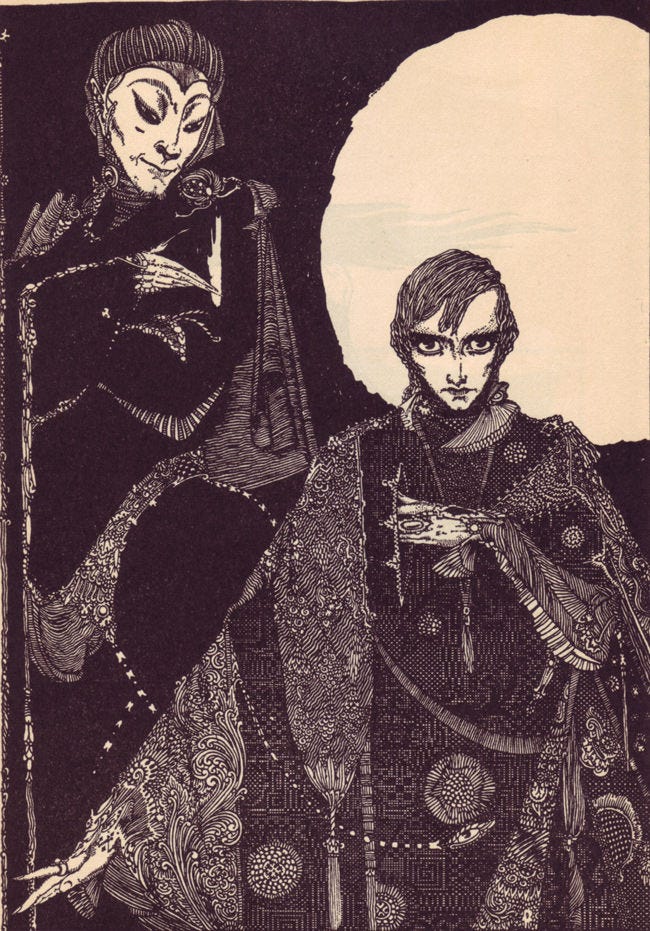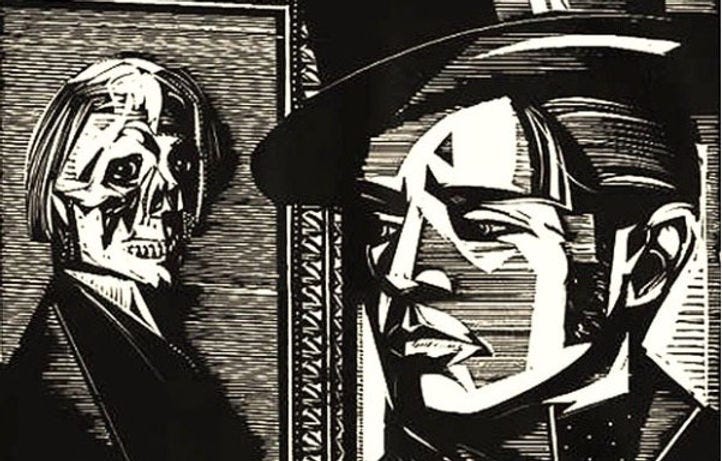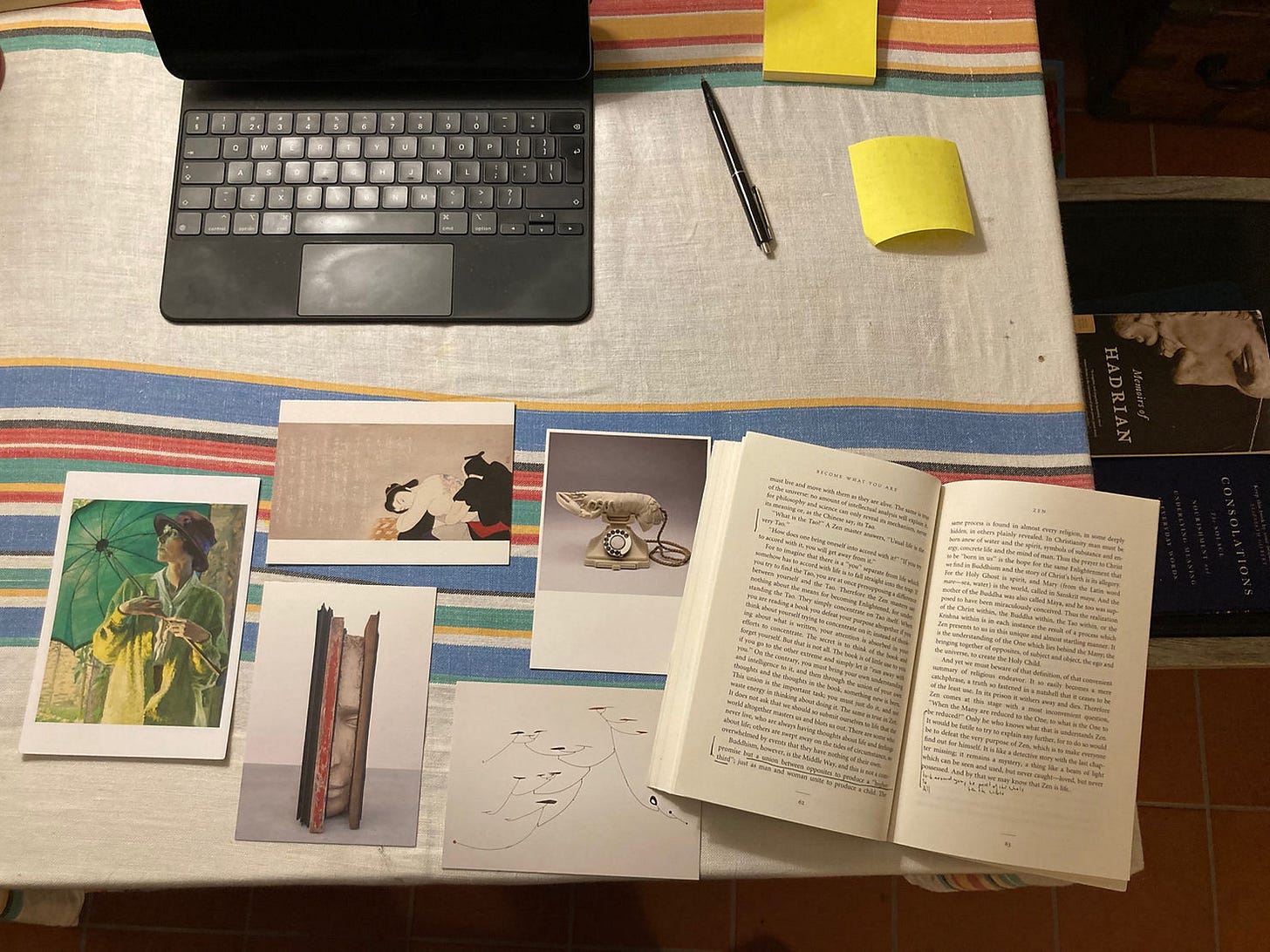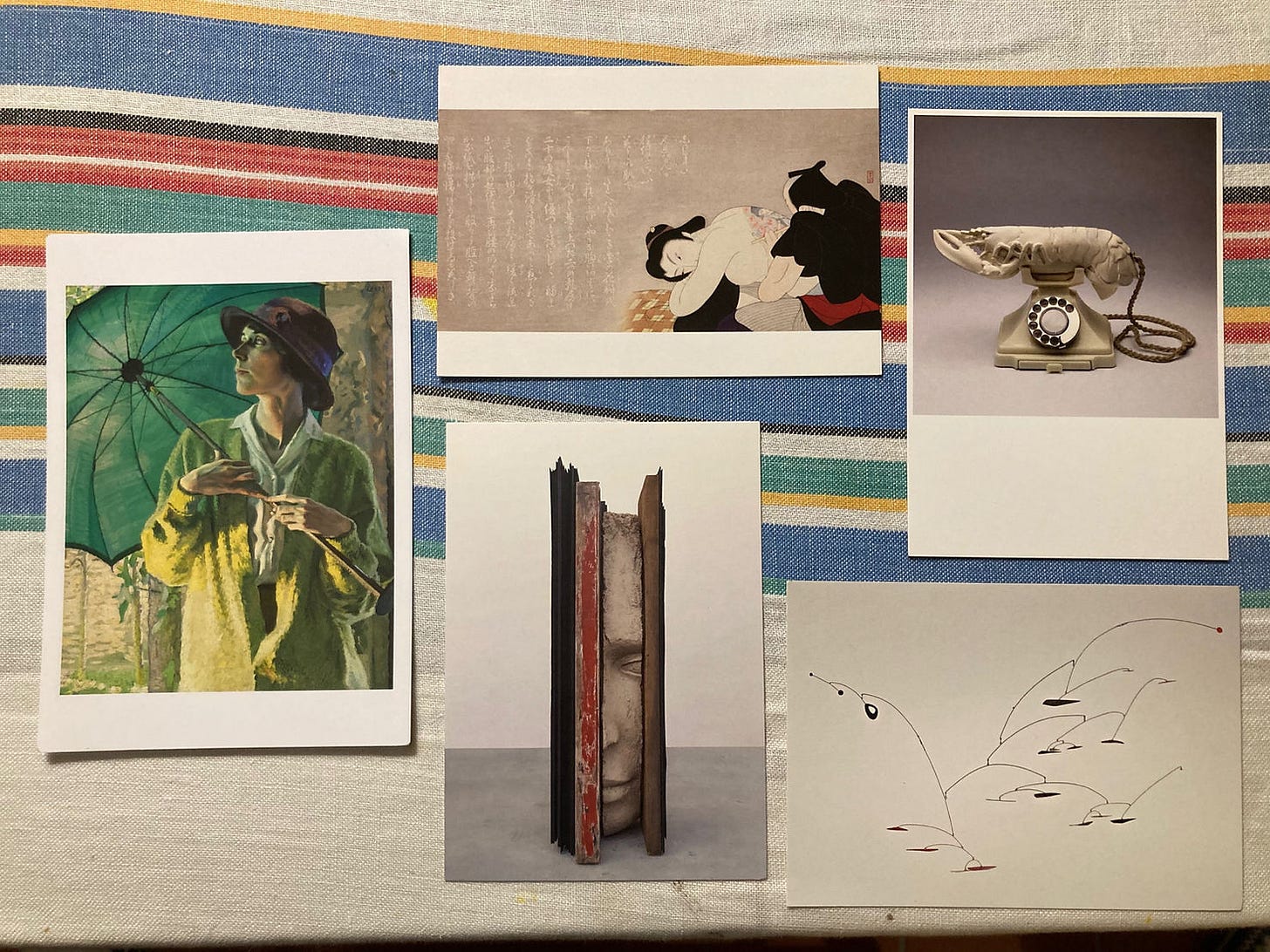In this somewhat regular letter, sprinkles of my wanderings through philosophy, culture, art and, well, life. An attempt to ease some ruffled spirits, perhaps. Mine, at least. This is me on the internet, this is my website.
Hello everyone,
This week, two short(er) and (somewhat) separate yet (somewhat) overlapping letters that I wrote in the last couple of weeks and some surging energy in the form of tennis and speeching.
Read them below and/or keep reading if you are interested in some upcoming programs.
SOME UPCOMING PROGRAMS:
We’ve entered the last month of the year, and that means that the shortest day is near. Which also means that light will return to us shortly. During these first new days of returning light, starting December 22nd, me and my brother-in-spirit Simon Ohler invite you to join us in The Twelve Holy Nights, a timeless way to enjoy the most silent time of the year and to make lasting “new year’s resolutions”.
About the program:
After every out-breath, there is a static phase, a moment of stillness. The year knows this as well, and presents us with a static phase from December 25: the world rests and holds still, until January 6.
These are the Twelve Holy Nights. They are a time of rest, renewal and replenishment. Each night has its own theme and corresponds with one month of the new year. During this time, it seems like nothing happens, and yet, under the surface, these days of quiet begin to weave the yet unborn blueprint, which will take form in the approaching new year. If we peer below the surface, these days can serve us, by bringing us into conversation with ourselves, and showing us how we may want to live in the new year. A way to form a “new year’s resolution”.
We invite you to accompany us on our journey through the Holy Nights. Let’s allow ourselves to have a beautiful 2023!
This ‘online retreat’ consists of three 3-hour sessions starting on December 22nd.
More information & sign-up, click here.
Upcoming Dutch sessions:
Tussen Werelden: het Onnoembare:
Dit online programma van 5 sessies van anderhalf uur met filosoof, ecoloog, bioloog, all-round inspirerend mens en goede vriend Matthijs Schouten start 18 januari.
We verkennen hoe de mensheid zich verhouden heeft met dat wat niet meer benoembaar is. Hierin ligt de oorsprong van alle religieuze systemen die hier vormen en rituelen voor hebben proberen te vinden. We onderzoeken deze vormen en rituelen door verschillende culturen en tijdperken heen en gaan kijken welke vorm en betekenis deze rituelen in onze huidige tijd hebben. Klik hier voor meer informatie en om je aan te melden.
Een dag van stilte in het teken van februari in een prachtig bos in Maarn op 16 februari. Voor meer informatie en om je aan te melden, klik hier.
Now, for the two letters:
1.
Faist & Faust: let go, walk on and make the infinite your home
Just watched the Steven Spielberg remake of West Side Story (2021) and this one actor REALLY stood out: Mike Faist.
Also, great name. Reminds me of Faust. Faist hails from Ohio, but who knows, they might be related.
Let's double check Faust on wikipedia:
Mephistopheles proposes a wager to Faust: If he can grant Faust a moment of transcendence on earth, a moment that he wishes to remain forever, then he will instantly die and serve the devil in hell.
Intriguingly, Faist, in this interview, quite literally describes the deal his (I now believe to be probable) great-great-great-great-grandfather made with the the one and only Mephistopheles (the devil, that is):
“You just have to keep moving forward,” Faist said. “These moments, they come, they’re precious, but don’t be precious about them, because they come and go. Enjoy the moment, but keep going.” He paused to laugh, everything coming full circle. “I mean, there’s a song about that in ‘Sunday in the Park with George’ from Stephen Sondheim!,” he said. “You’ve got to just keep moving on.”
Coincidentally, I'm now reading Alan Watts1, and, in a chapter called 'Zen', which is about Zen, which is impossible to talk or write about, he writes about something similar:
If anything that lives and moves is held, it dies just like a plucked flower. Egotism is a fierce holding on to oneself; it is building oneself up in a haughty stronghold, refusing to join in the play of life, refusing to accept the eternal laws of change of movement to which all are subject. But that refusal can only be illusion. Whether we like it or not, change comes, and the greater the resistance, the greater the pain. (…) Life is like music in this: if any note or phrase is held for longer than its appointed time, the melody is lost. Thus Buddhism may be summed up in two phrases: “Let go!” and “Walk on!”
Isn’t that beautiful?
Refusing to join in the play of life: West Side Story anyone? Which, incidentally, is also about the need to let go and accepting the eternal laws of change of movement - ‘the greater the resistance, the greater the pain’ might even be its motto.
Holding on to your note for too long in this symphony of life, holding on to oneself, you fall into egotism. Sometimes, the ego is described as the devil: the purely rational part of our being, held back by and holding on to old pattens of behavior, never able to change. Imagine being completely in the ego’s hold. Coming back to Faust, it might be compared with dying, and that form of living akin to ‘serving the devil in hell.’ Now the ego in itself ain’t all that bad, indispensable even, but giving it/him/her the reigns to your life might not be wise. A bad deal. The worst even: a deal with the devil.
Coincidentally, I ALSO just happened to have read a story about three fish, by Sufi poet (the most famous of them all!) Rumi:
THE THREE FISH
This is the story of the lake and the three big fish
that were in it, one of them intelligent,
another half-intelligent,
and the third, stupid.
I would say that’s a pretty good start to a story. Then, danger approaches by way of fishermen with nets. The smart fish being smart decides to move, and so it continues:
When you’re travelling, ask a traveller for advice,
not someone whose lameness keeps him in one place.
Muhammad says,
"Love of one's country
is part of the faith."
But don't take that literally!
Your real "country" is where you're heading,
not where you are.
Don't misread that hadith* (*saying by Muhammad).
(...)
It's right to love your home place, but first ask,
"Where is that, really?"'
(…)
Sometimes there is no one to talk to.
You must set out on your own.
So, the half smart fishy, in doubt, thinks 'Shit, I should've gone with my smart fish friend.’
Back to Rumi:
Don't regret what's happened. If it's in the past,
let it go. Don't even remember it!
Easy for a gold fish with a seven second memory to say!
Back to the fishies, gold or otherwise. The smart one is gone, because he is smart (and courageous, for leaving the imagined home, one's safe environment, needs courage. Ask Frodo! Or yourself, for that matter).
The 'half-intelligent' fish then, decides that - after sticking around and not following the guide (as he calls the smart fish) - playing dead is the way to go in this particular situation.
I'll belly up on the surface
and float like weeds float, just giving myself totally to the water. To die before I die, as Muhammad said to.
So he did that.
Then he's left by the fisherman, and secretly slides back into the water. Finally, we end with the end of the stupid one. We feel the inevitable tragedy closing in, like, let's say, a net:
The net, of course, finally closed
around him, and as he lay in the terrible
frying-pan bed, he thought,
"If I get out of this,
I'll never live again in the lmits of a lake.
Next time, the ocean! I'll make the infinite my home."
To make the infinite one's home! Yes! But how?
Understanding that there is no holding on to anything. NO past, NO future.
Like Rumi said, earlier in the poem:
It's right to love your home place, but first ask, "Where is that, really?"'
It is al coming together now. Almost there.
Faust:
He continues striving untill the end of his life and it is in this continued pursuit, despite the partnership with the devil, that saves his soul.
Followed by Faist:
“Enjoy the moment, but keep going.” (Faist) paused to laugh, everything coming full circle.
And what Watts said:
If anything that lives and moves is held, it dies just like a plucked flower.
-
Thus Buddhism may be summed up in two phrases: “Let go!” and “Walk on!”
And so the life of a smart fish might also be summed up in two phrases. And - wait a minute - the life of an actor might ALSO be summed up in two phrases. COME TO THINK OF IT: LIVING may be summed up in two phrases. So! Listen to the fish, to Faisty Fausts, to Watts his name:
Let go!! Walk on!!!
And let the infinite be your home.
WALK ON!!
ok, one more:
Ok, ONE more (just look at van Dijk and Klopp’s faces):
2.
A letter written before the first. More Watts, less Faist.
Break Zen Fast
Reading Alan Watts,
the book is called:
‘Become What You Are,’
the chapter is called ‘Zen’
maybe unsurprisingly,
some (four) Zen stories are told.
Un:
A disciple came to Zen Master Chao-chou and asked, “I have just come to this monastery. Would you mind giving me some instruction, please?”
The Master replied, “Have you eaten your breakfast yet, or not?”
“Yes, I have, sir.”
“Then wash you dishes.”
The disciple all of a sudden became enlightened to the whole meaning of Zen.
Deux:
A Zen Master was about to address an assembly of students when a bird began to sing in a nearby tree. The master remained silent until the bird had finished, and then, announcing that his address had been given, went away.
Trois:
Another master set a pitcher before two of his disciples.
“Do not call it a pitcher,” he said, “but tell me what it is.”
One replied,
“It cannot be called a piece of wood.”
The master, however, was not satisfied with this answer, and he turned to the other disciple who simply knocked the pitcher over and walked away.
This action had the master’s full approval.
Quatre:
“What is the Tao?”
A Zen master answers, “Usual life is the very Tao.”
“How does one bring oneself into accord with it?”
“If you try to accord with it, you will get away from it.”
And that is four. In the book, Watts introduces and goes into each of these Zen stories.
I will not.
Let’s leave it open-ended.
Why?
Because, as Watts HIMSELF says, the very purpose of Zen is to make everyone find out for herself what THE HELL IS GOING ON AROUND HERE (not quite verbatim). For, ‘it is like a detective story with the last chapter missing; it remains a mystery, a thing like a beam of light which can be seen and used, but never caught - loved, but never possessed. And by that we may know that Zen is life.’
Just imagine, a detective story without the ending, how extremely annoing. Unless, of course, you find out who did it by yourself.
The Zen-with-the-bird-story by the way, reminds me of my first (and only, so far) Zen retreat, where the Zen Master gave me my first koan:
‘What is your Buddha nature when you hear the birds sing?’
The answer I cannot give, coming back to the whole open ended detective story and all that. Also, if given the solution to a koan, one can never answer it themselves. A friend of mine gave away the ending to ‘The Sixth Sense’, and I am still annoyed.
The Zen-with-the-breakfast-story reminds me of a (still unfinished) poem I wrote just before going into the Zen retreat:
Reading the poem now, longing for some rushless Granola once more.
More on the cards, see footnote.2
Let‘s end with the beginning. Watts says (at the beginning of the chapter):
‘Although Zen is a word of only three letters, three volumes would not explain it, nor even three libraries of volumes.’
So, wash your dishes after breakfast, listen to the birds sing, knock over some (empty) pitchers, stop trying and, most of all, stop reading.
Love,
from,
Louis
… or if you’ve decided to continue reading, then now it definitely is time for
Release of some tension:
Energy. It builds up. Then it wants release. I guess we all know this. Some (SFW) examples.
Example 1:
See number 2 in the countdown (specifically) - when Carlos Alcaraz gets to the net and his balance is on the wrong foot, but still manages to get the ball, then, well, wow. You can FEEL the build up, in the crowd, in the stadium. Then, release. Impossible to stay in your seat.
Example 2:
Again the build-up of tension, then, it hungers for release. One must stand up!
Bonus:
The point at min 2:03. Crazy. Tennis is crazy right now. The level at which they are playing, since Federer, incredible. It feels like they’re really pushing the boundaries of what’s possible. And now this dude.
Going clockwise, starting with the lady in green:
- William John Leech, the Sunshade, c. 1913 (from the National Gallery Ireland, Dublin, which I visited just after the Zen retreat)
- Komura Settai, Tattoo artist at work, 1938
- Salvador Dalí, White aphrodisiac telephone, 1936
- Alexander Calder, Suspended Composition of Small Leaves (Four Red Spots), 1947
- Mark Manders, Large Composition with Red, 2017












